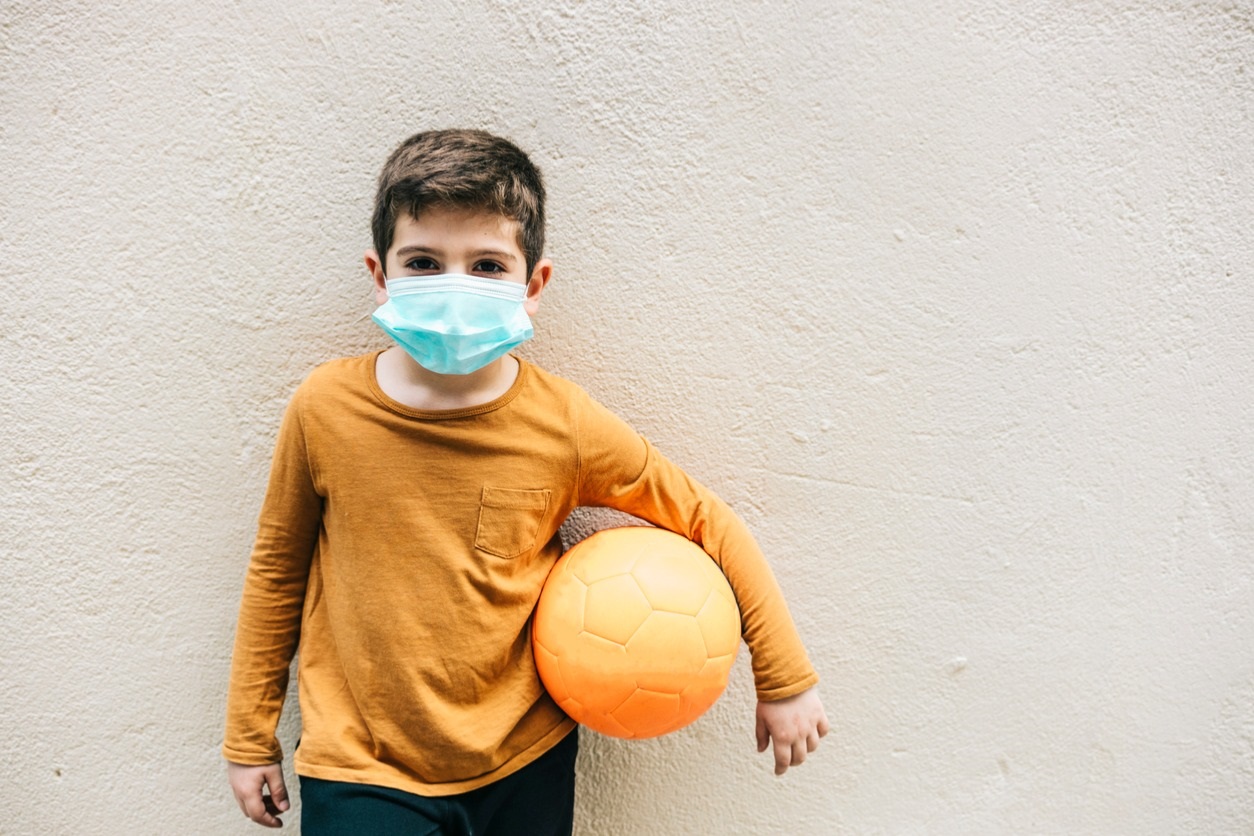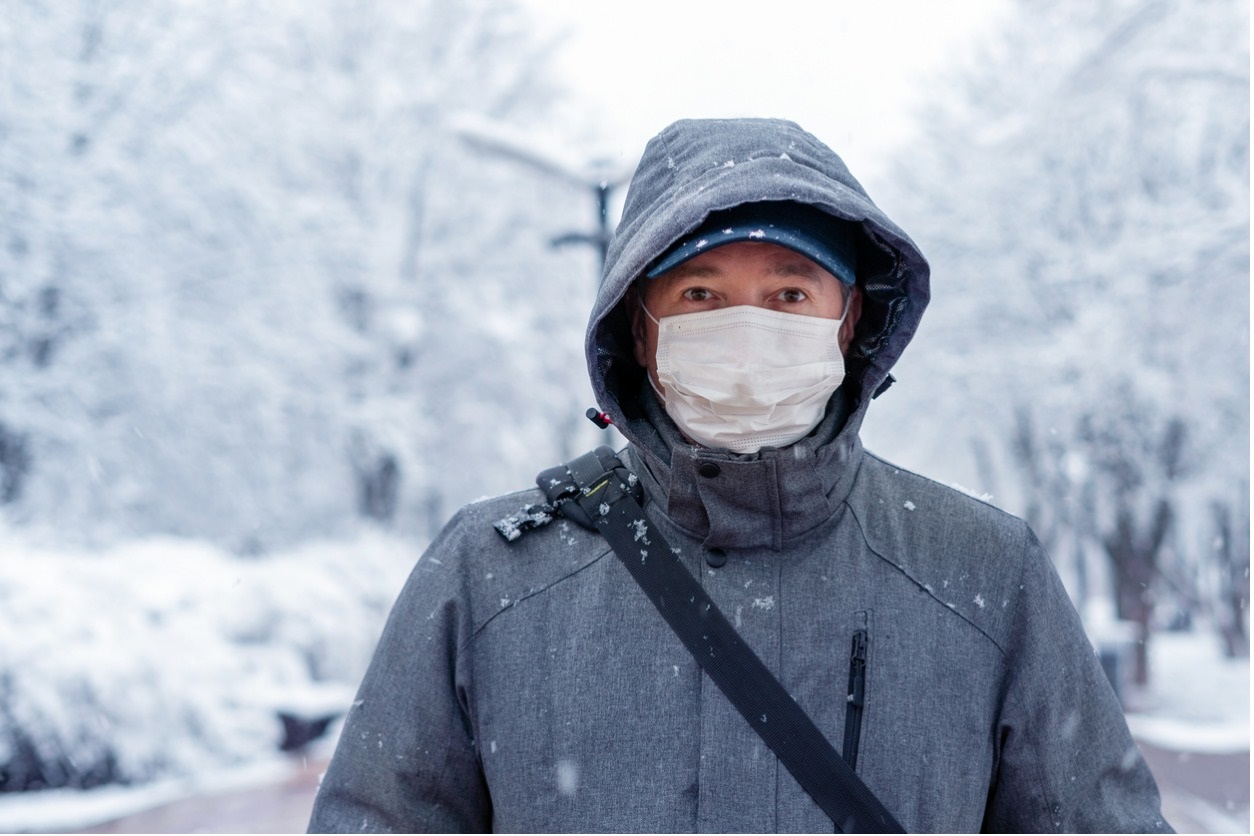Ask the Experts: Positive Coping Strategies for Managing COVID-19 Stress in the Winter Season
Written By: Kalina Lamb, MA; Oregon State University
For many, COVID-19 has brought a new set of challenges into how we function as educators, students, researchers, parents, etc. For some, we find that our office has also become our children’s virtual classroom, making it difficult to hold meetings or find productive work hours. For others, the inability to find quality time to spend with friends and loved ones may have us feeling isolated and lonely. As a consequence of the stressors brought on by the COVID-19 pandemic, these disruptions have been associated with increased stress and anxiety levels.1-4
Unfortunately, we are now in the winter season, which can bring its own set of challenges and obstacles. The cold weather can keep us indoors more often compared to other times of the year, which is why we experience challenges during the winter months. For example, longer nights and shorter days associated with the winter season can leave us feeling:
- Socially isolated
- Emotionally down
- Cognitively less alert
- Physically more tired5
The combination of winter and COVID-19 means that it is important, especially now more than ever, to employ positive coping strategies and engage in stress and anxiety reducing activities. Luckily, considering the Integrative Health and Spirituality SIG of SBM is home to some of the top experts in various positive coping strategies. We knew just the people to ask about what kind of strategies they use to reduce COVID-19 related stress.
We surveyed our SIG members during December 2020 about self-care practices and coping techniques they have been practicing. The most utilized coping strategies include:
- Physical activity (outdoors and indoors)
- Virtual and in-person (socially distanced) social interaction
- Positive psychology practice (e.g., creativity, humor)
- Meditation
- Spiritual practices (e.g., prayer)
All of these practices, when used on a consistent basis, can reduce stress and boost your mood.6 When asked about how effective these strategies have been for reducing stress, they seem to be working pretty well for our SIG members! Most of the group reported that they have been doing well managing or maintaining their mental health by engaging in these practices anywhere from 1-2 times a week to every day.
These positive healthy coping strategies might seem daunting with winter approaching. It can be hard to find the time to utilize positive coping strategies when the days are shorter, darker, and colder. Some of these strategies may seem less practical, especially for those of us in the more northern or middle regions of the US. (I know I sure do not want to go running outside when it’s 30 degrees.)
Fortunately, we do not have to give up on the strategies that work for us just because winter is here. Our SIG members have adjusted their positive coping strategies so that they can still be effective during the winter season. For example, some have transitioned to exercising indoors, including their family in their exercise time, purchasing a light box, and moving socially distanced in-person social events to videoconference. One SIG member even suggested changing their meditative practice to incorporate images that exude warmth.
Despite the challenges of COVID-19 and the winter season, these ideas help us find ways to engage in positive coping strategies by being creative and flexible. One creative strategy that may be beneficial is to tailor our practices to target COVID-19 related stress directly (e.g., using formal and informal mindfulness practices to calm COVID-19 related fears and direct attention to COVID-19 health behaviors within our control)7. By finding and implementing a positive coping strategy that works well even during the colder weather, we may find that these days spent inside working from home may just get a little bit easier.
1. Brown SM, Doom JR, Lechuga-Pena S, Watamura SE, Koppels T. Stress and parenting during the global COVID-19 pandemic. Child Abuse Negl. 2020;110(Pt 2):104699.
2. Gabster BP, van Daalen K, Dhatt R, Barry M. Challenges for the female academic during the COVID-19 pandemic. The Lancet. 2020;395(10242):1968-1970.
3. Pfefferbaum B, North CS. Mental health and the Covid-19 pandemic. N Engl J Med. Aug 6 2020;383(6):510-512.
4. Xiong J, Lipsitz O, Nasri F, et al. Impact of COVID-19 pandemic on mental health in the general population: A systematic review. J Affect Disord. 2020;277:55-64.
5. Harvard Health Publishing. Is it seasonal depression or just the winter blues? Harvard Women's Health Watch 2014; https://www.health.harvard.edu/mind-and-mood/is-it-seasonal-depression-or-just-the-winter-blues.
6. Walsh R. Lifestyle and mental health. Am Psychol. 2011;66(7):579-592.
7. Hall DL, Millstein RA, Luberto CM, Perez GK, Park ER. Responding to COVID-19 Stress: Disseminating Mind-Body Resiliency Approaches. Glob Adv Health Med. 2020;9:1-4.
More Articles

How to Get the Most out of Your Telehealth Appointment
Amidst the COVID-19 pandemic, many clinicians have transitioned to telehealth appointments. Get the most out of your virtual visit with these tips and tricks.

Keeping Kids Active during COVID-19
The COVID-19 pandemic has made it challenging for parents to limit their children’s screen time and encourage physical activity. Learn tips and tricks to engage kids in physical activity when access to typical activities is restricted.

COVID-Safe Winter Physical Activity Ideas: A Special Focus on Older Adults
Physical activity levels dropping around the world in response to the COVID-19 pandemic, especially for older adults during the winter. Learn tips and tricks for staying active while pandemic restrictions are in place, even as the cold weather sets in.

